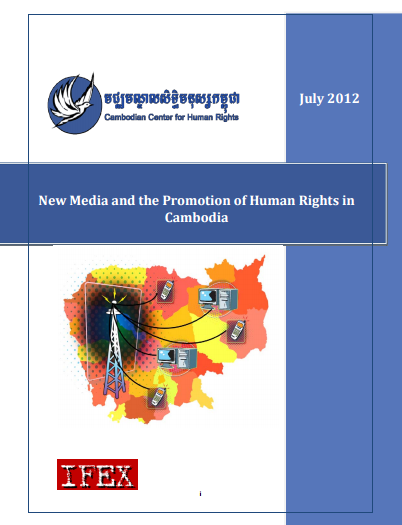
New Media and the Promotion of Human Rights in Cambodia
Publication Year: 2012 / Sources: the Cambodian Center for Human Rights (CCHR)This report seeks to explore the extent to which new media, namely mobile phones and the internet, are used in
Cambodia, and in particular how they are used to promote and protect human rights.
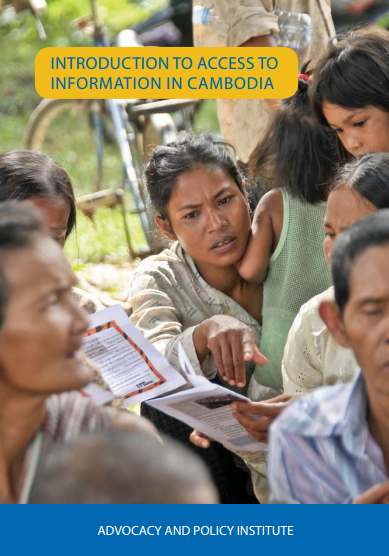
Introduction to Access to Information in Cambodia
Publication Year: 2010 / Sources: Advocacy and Policy Institute (API)The right to information is a fundamental human right, and access to information can benefit all Cambodians in their everyday lives. This booklet serves as a basic introduction to access to information for Cambodian civil society, public officials, business owners, journalists, students, community members and those committed to support and promote access to information across the country.
Download: English | Khmer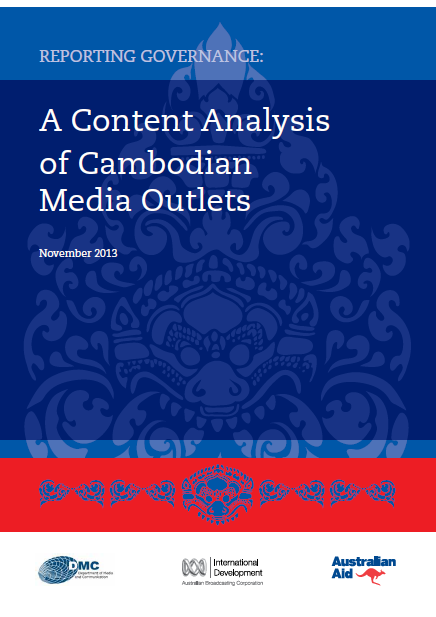
Reporting Governance: A Content Analysis of Cambodian Media Outlets Acknowledgements
Publication Year: 2013 / Sources: Australian Broadcasting Corporation International Development (ABC ID) & Department of Media and Communication of the RUPP (DMC)Academic and development literature agrees that good governance, free flow of information and quality media news coverage go hand in hand. As a post-communist state and a state in the process of rapid transformation, Cambodia is in need of a capable fourth estate to help achieve good governance. The media’s role is thus not only to report on governance issues, but also to build and enhance knowledge around the concept of governance.
Download: English | Khmer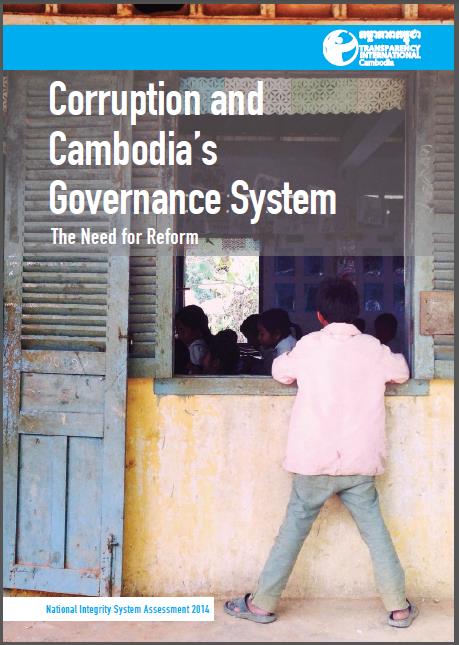
Corruption and Cambodia’s Governance System: The Need for Reform
Publication Year: 2014 / Sources: Transparency International CambodiaThe Cambodia National Integrity System Assessment provides an evaluation of the state of the country’s governance system. It assesses 13 institutions from the Judiciary to the Anti-Corruption Unit to civil society. A well-functioning National Integrity System safeguards against corruption and contributes to the larger struggle against abuse of power. Corruption undermines good governance, the rule of law, and fundamental human rights. It leads to misuse of resources, cheats citizens, harms the private sector, and distorts financial markets.Yet when governance institutions are characterised by appropriate regulations and accountable behaviour, corruption is less likely to thrive. Transparency International Cambodia has developed key policy recommendations based on the findings of this report. The recommendations, contained within, seek to engage government, donors and civil society to push forward crucial reforms to improve the integrity system. Strengthening the National Integrity System promotes better governance across all aspects of society, and, ultimately, contributes to a more just society overall.
Download: English | Khmer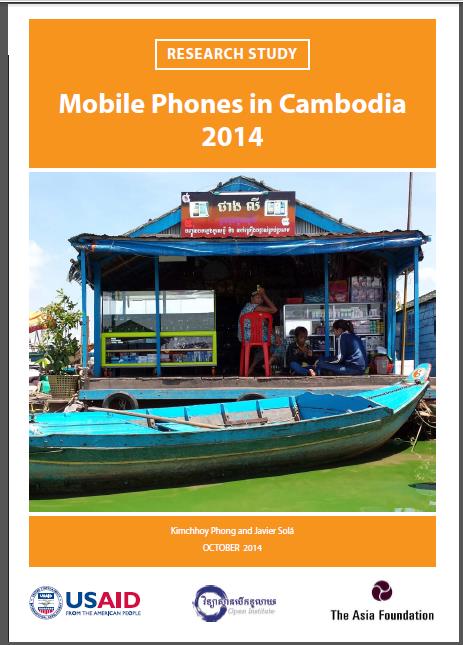
Mobile Phones in Cambodia 2014
Publication Year: 2014 / Sources: The Asia FoundationThis study has been undertaken with the aim of developing an understanding of the knowledge, attitude and practices of phone users in relation to Khmer language typing, writing and searching habits, as well as the motivating factors in the use of Khmer script. It also attempts to identify changes and trends in the use of Khmer-enabled phones and Khmer script to communicate via mobile phones.
Download: English | Khmer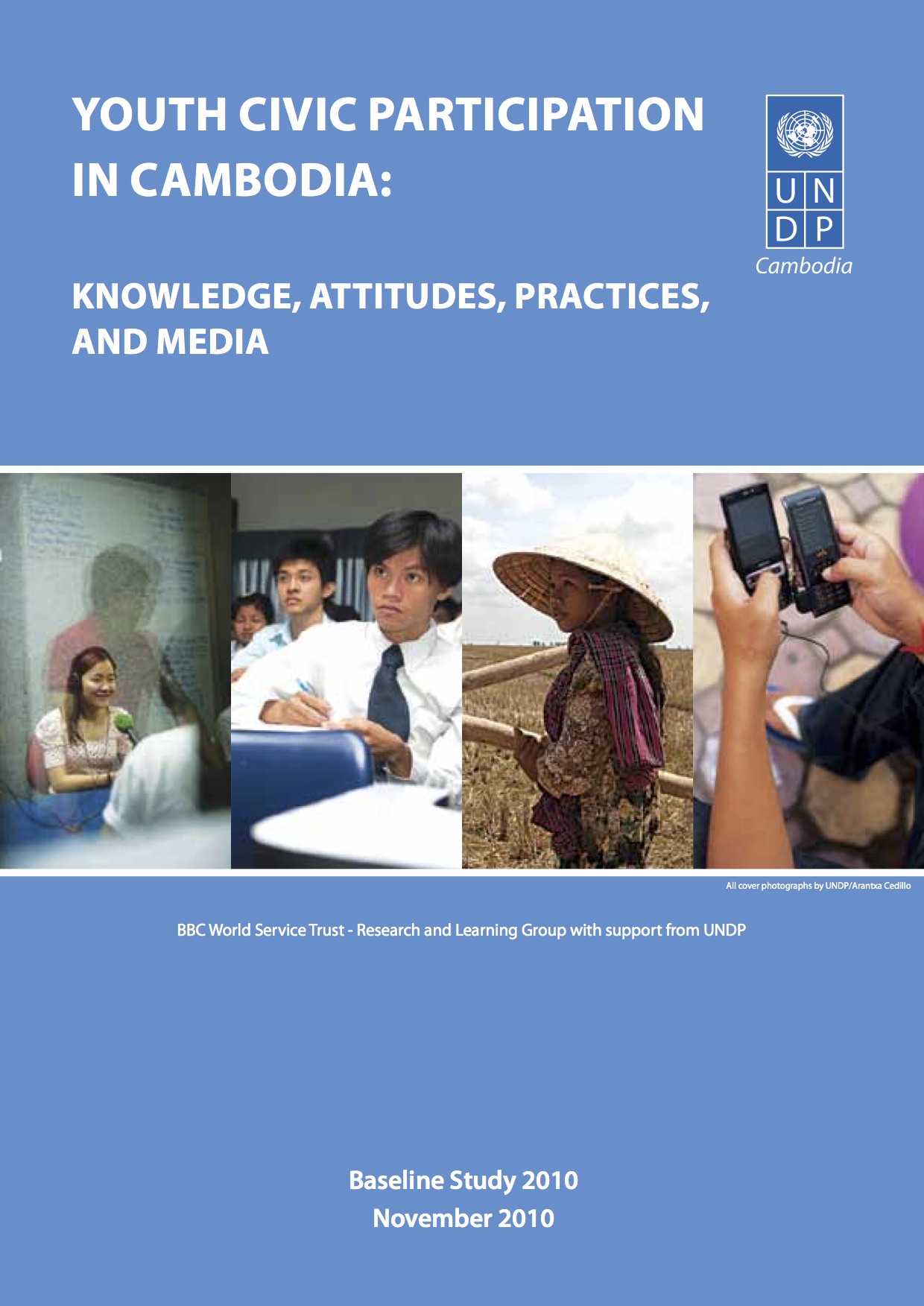
Youth Civic Participation in Cambodia: Knowledge, Attitudes, Practices and Media
Publication Year: 2010 / Sources: BBC World Service TrustThe media offers a platform for young people to interact with the wider society. it is also an effective channel to deliver civic education in a more entertaining and informal way and to model all kinds of participation to inspire a diverse and dynamic youth population across Cambodia. This study provides a detailed snap shot of youth media consumption trends across a variety of media forms. exposure levels are high, and access and consumption will only continue to increase. This information will be used by UNDP and other UN agencies in future programmes targeting youth, and will also offer important insights to all those working with young people on how to communicate with Cambodia’s vast youth population.
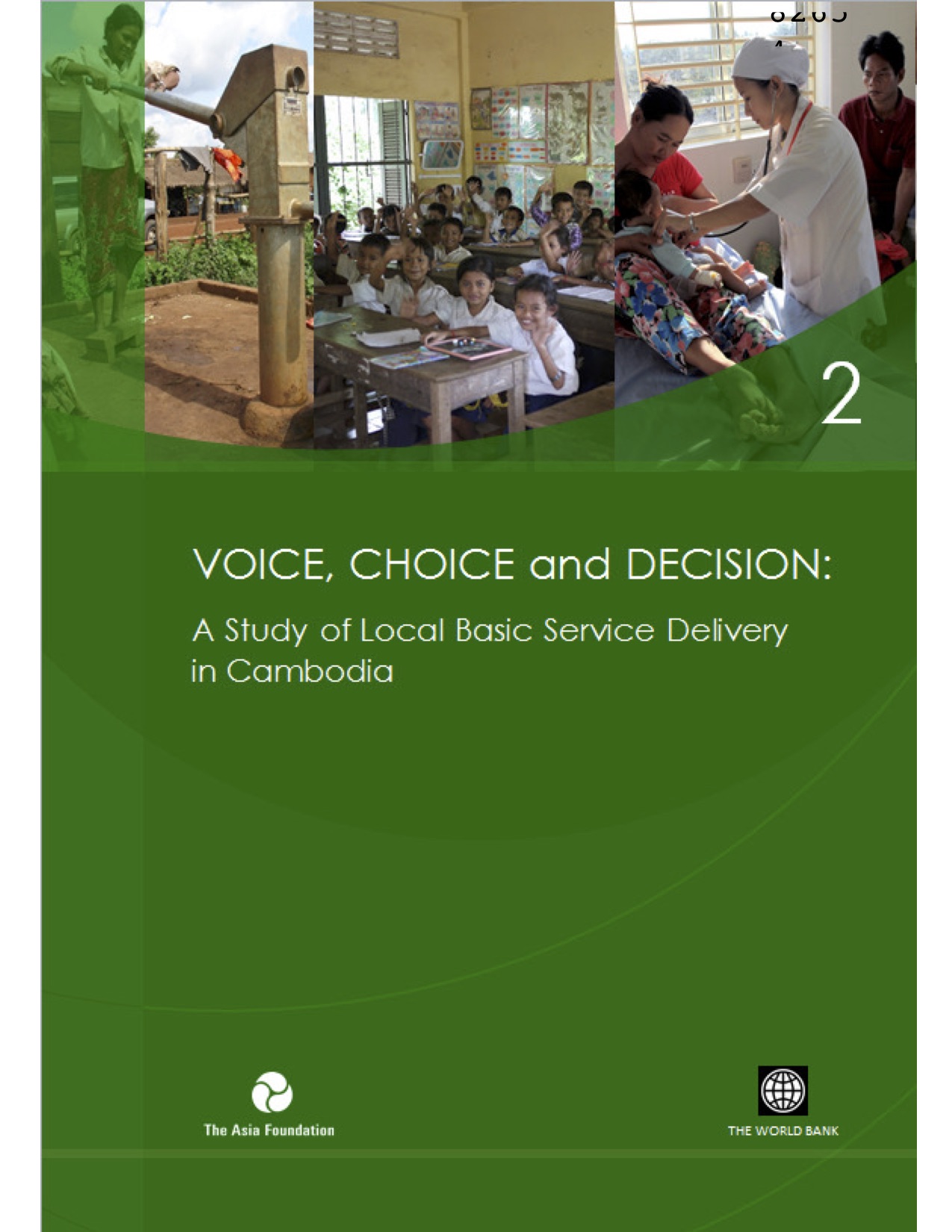
Voice, Choice and Decision: A Study of Local Basic Service Delivery in Cambodia
Publication Year: 2013 / Sources: World Bank and The Asia FoundationThe first study in this series, Voice, Choice and Decision: A Study of Local Governance Processes in Cambodia (VCD1), conducted in 2011, led to useful insights into the channels through which citizens engage in commune-level decision-making. It presented the formal and informal framework for citizen voice and downward accountability at the communes/sangkat level in Cambodia. This VCD1 study was, however, limited to the domain of the commune council, and focused mainly on Commune-Sangkat Fund (CSF) decision-making. Processes of voice, choice and decision are also crucial to effective service delivery, and, more broadly, to the development of consistent and predictable local governance.
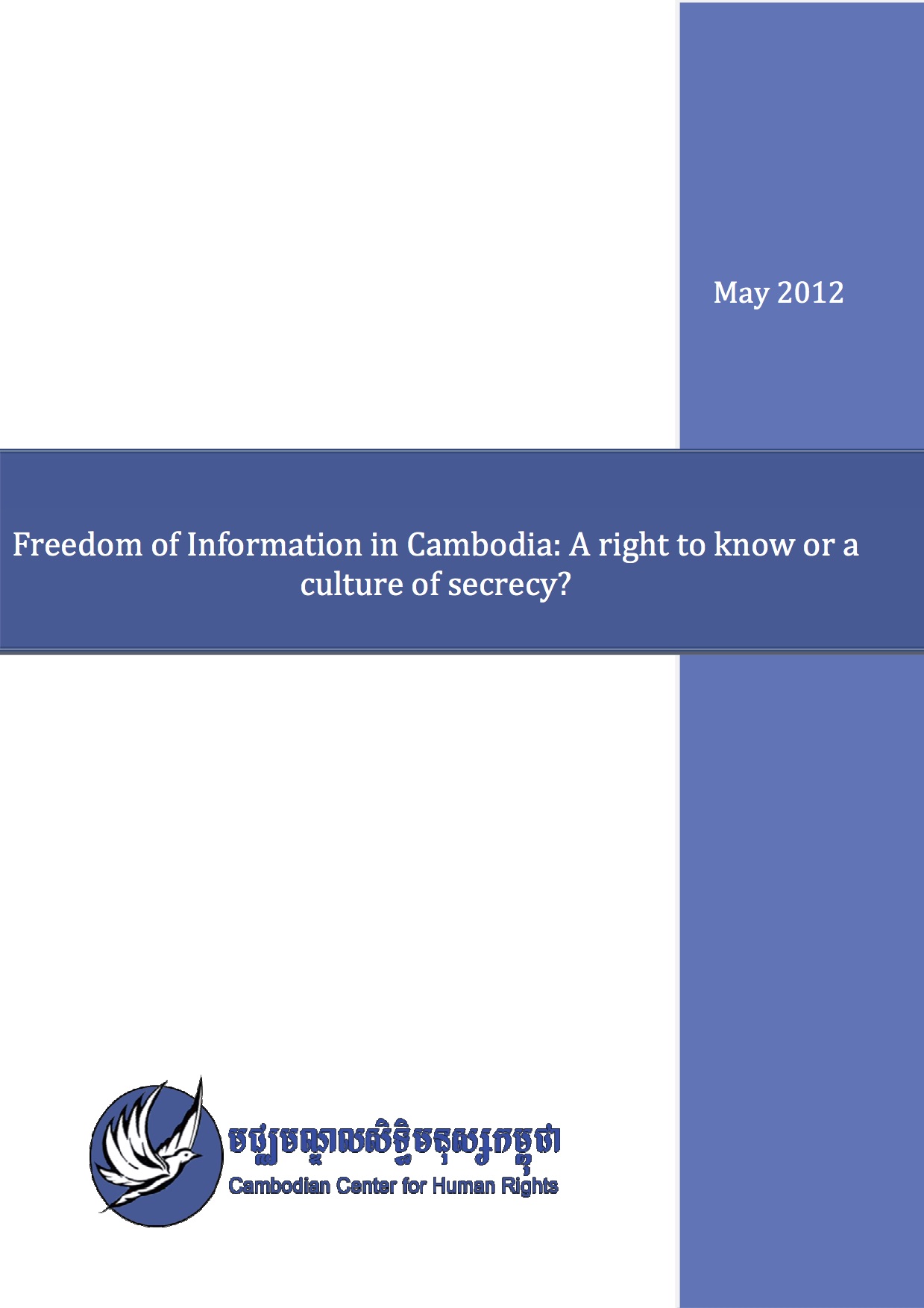
Freedom of Information in Cambodia: A right to know or a culture of secrecy?
Publication Year: 2012 / Sources: Cambodian Center for Human Rights (CCHR)The primary purpose of this Report is to encourage the RGC to continue in its efforts to adopt freedom of information legislation and to facilitate greater access to information. The Report looks at freedom of information principles, the status of the right to freedom of information in international law, and how access to information is currently dealt with in Cambodian laws. The Report also examines the difficulties that ordinary Cambodians face on a day-to-day basis when attempting to access information. The Report uses as examples four areas that CCHR has identified as being particularly important in so far as freedom of information is concerned – corruption (Chapter Four), the media (Chapter Five), the rule of law (Chapter Six), and resources and land (Chapter Seven). It also outlines structures and mechanisms that could be put in place to facilitate greater access to information, and provides recommendations for the content of a freedom of information law.
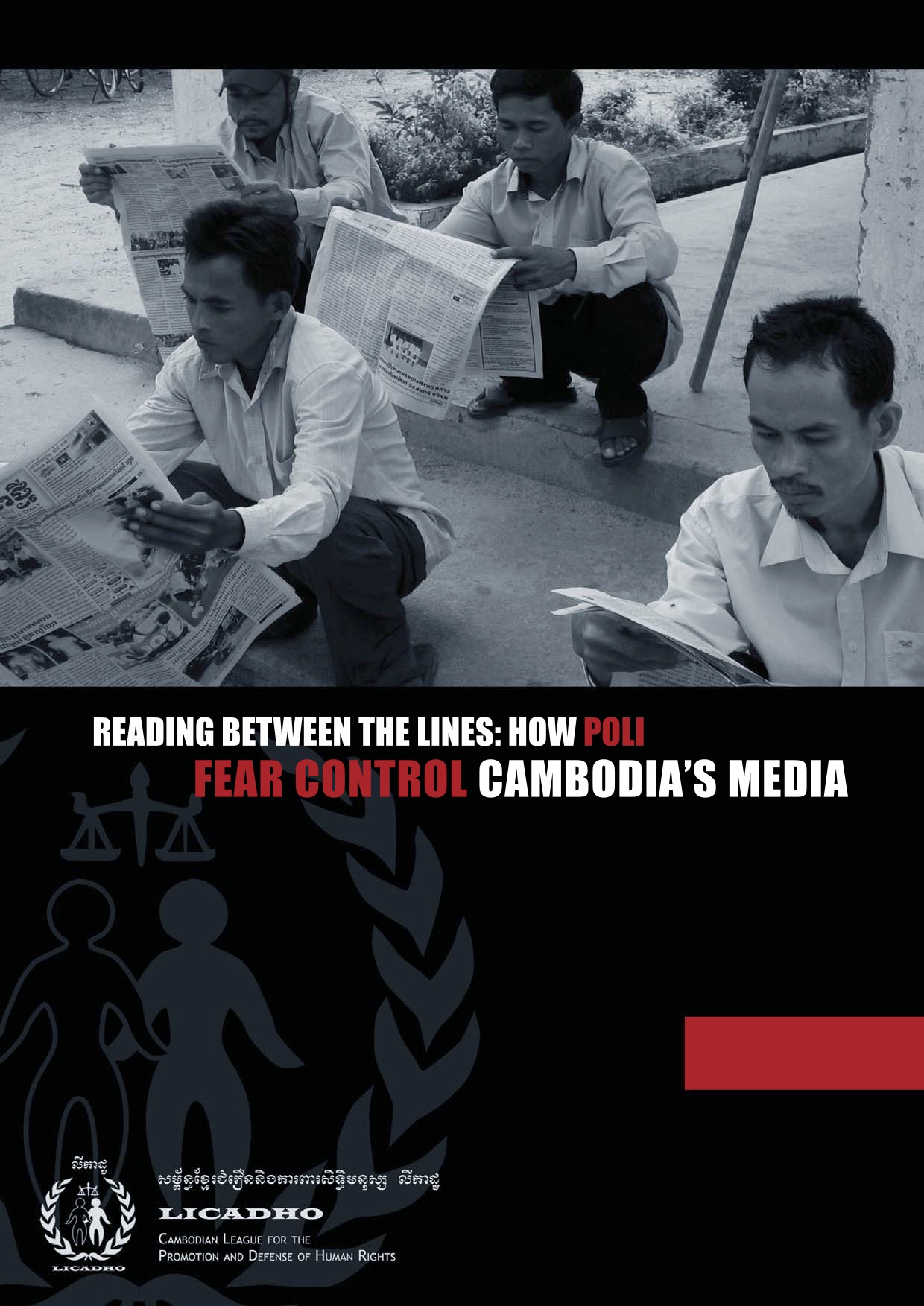
Reading Between the Lines: How Politics, Money & Fear Control Cambodia’s Media
Publication Year: 2008 / Sources: Cambodian League for the Promotion and Defence of Human Rights (LICADHO)This report focuses on the news media of Cambodia – television and radio stations, newspapers and, to a limited extent, the Internet. It will look at the media from a human rights perspective, examining the state of press freedom, access to information, attacks and threats against journalists. The report is based on documentary research, in-depth interviews and a survey of 150 Cambodian journalists. The results might hold some surprises about a media often cited as one of the most free in Southeast Asia.
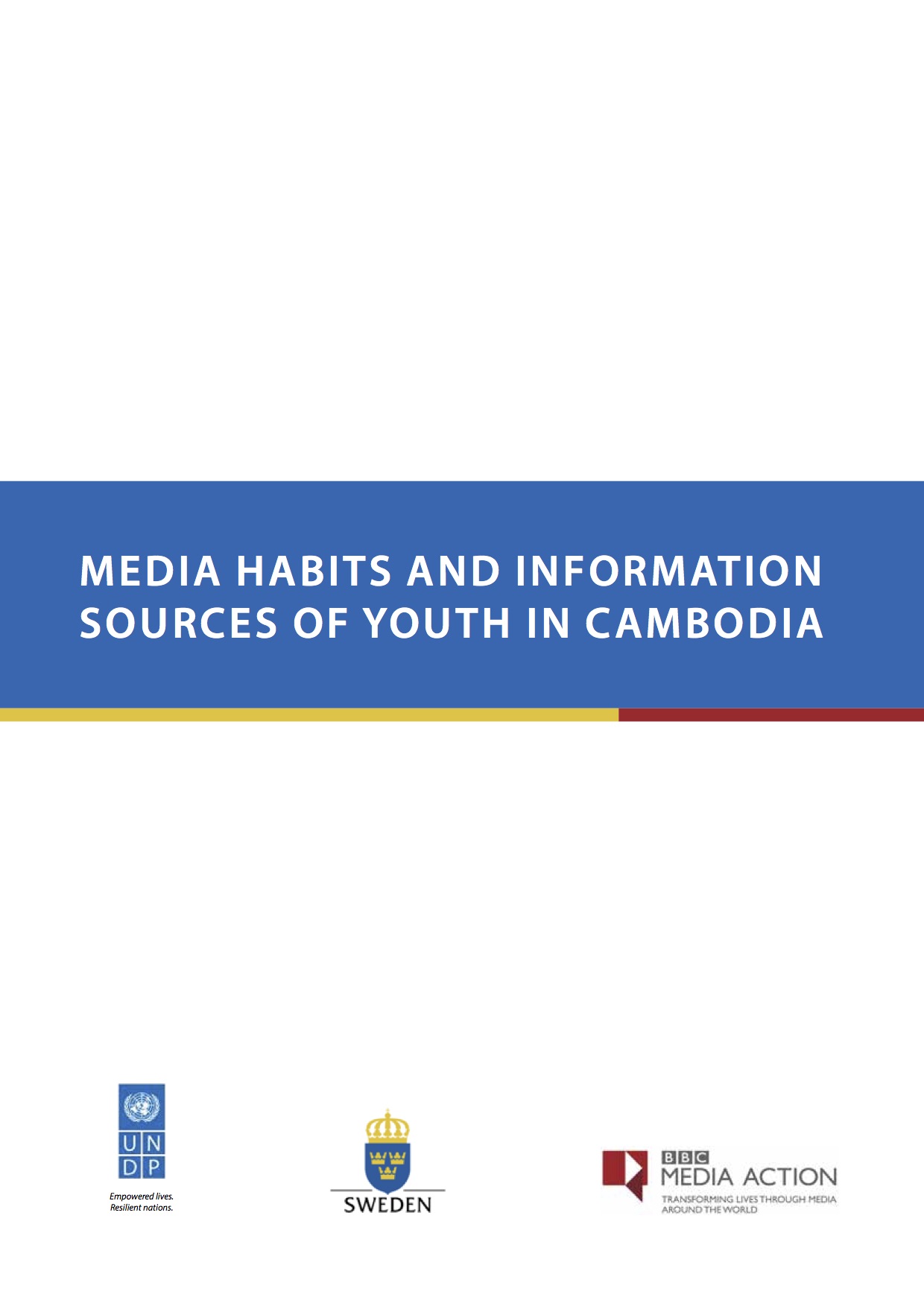
Media Habits and Information Sources of Youth in Cambodia
Publication Year: 2014 / Sources: BBC Media Action, Research & LearningThis multimedia project aims to reach young people in Cambodia in order to improve civic knowledge and encourage youth to engage in civic participation. Key programme objectives include improving knowledge and awareness of opportunities for civic participation, gender equality and the skills required for the empowerment of youth. In the run up to the 2013 election, a number of TV and radio Public Service Announcements (‘spots’) were also produced as part of the project to provide key information to the youth target audience to inform them about the voting process.
